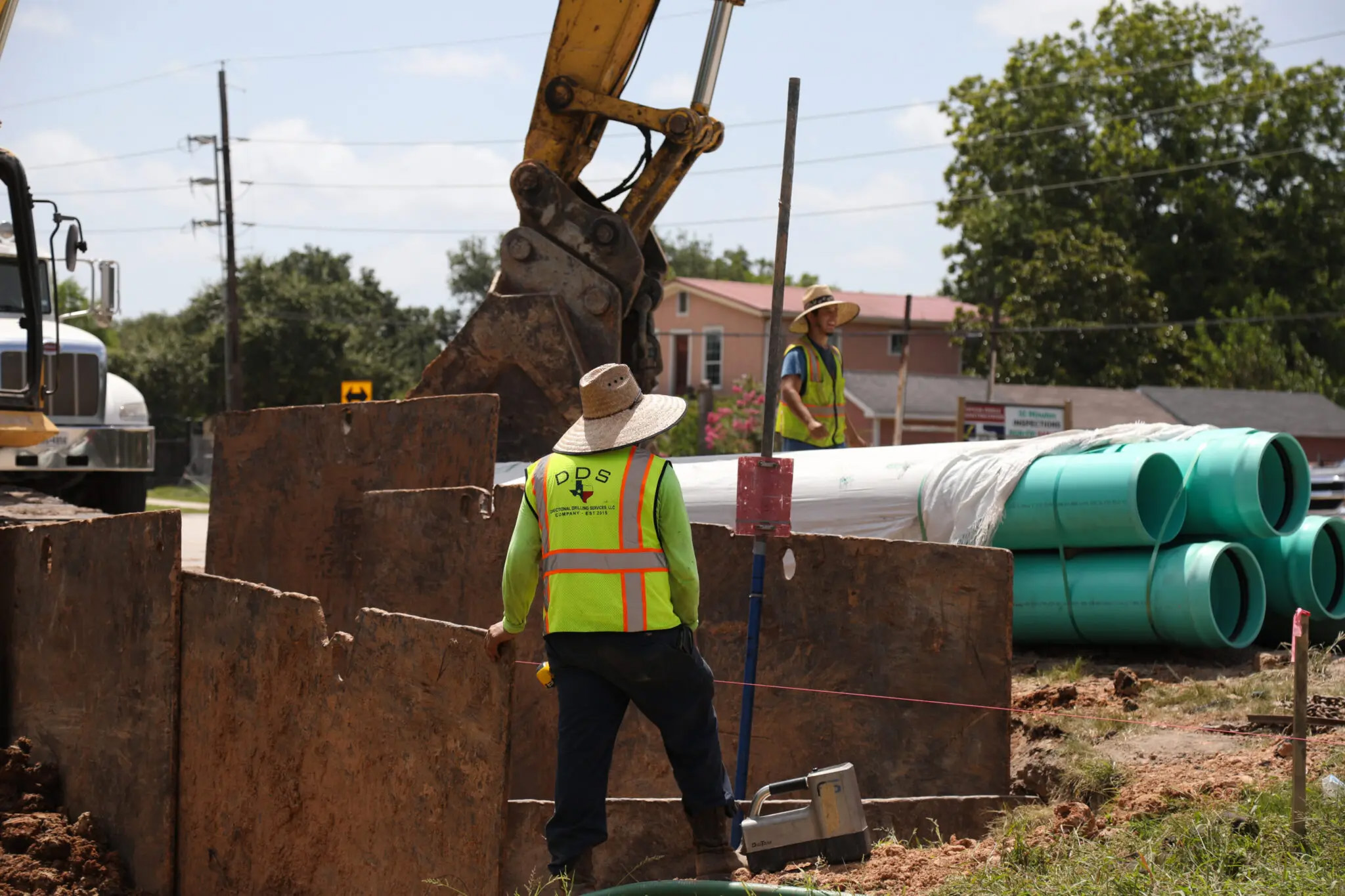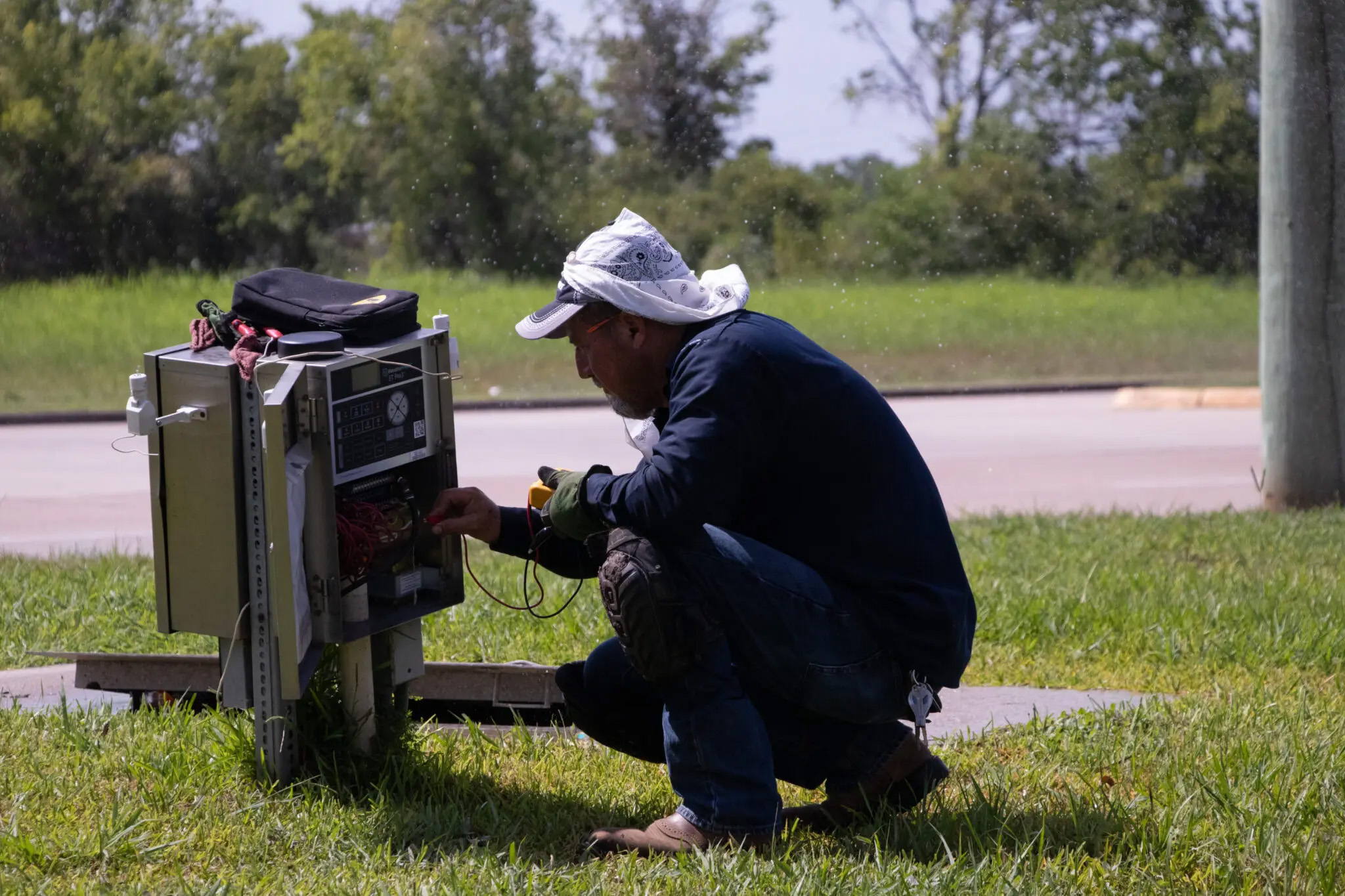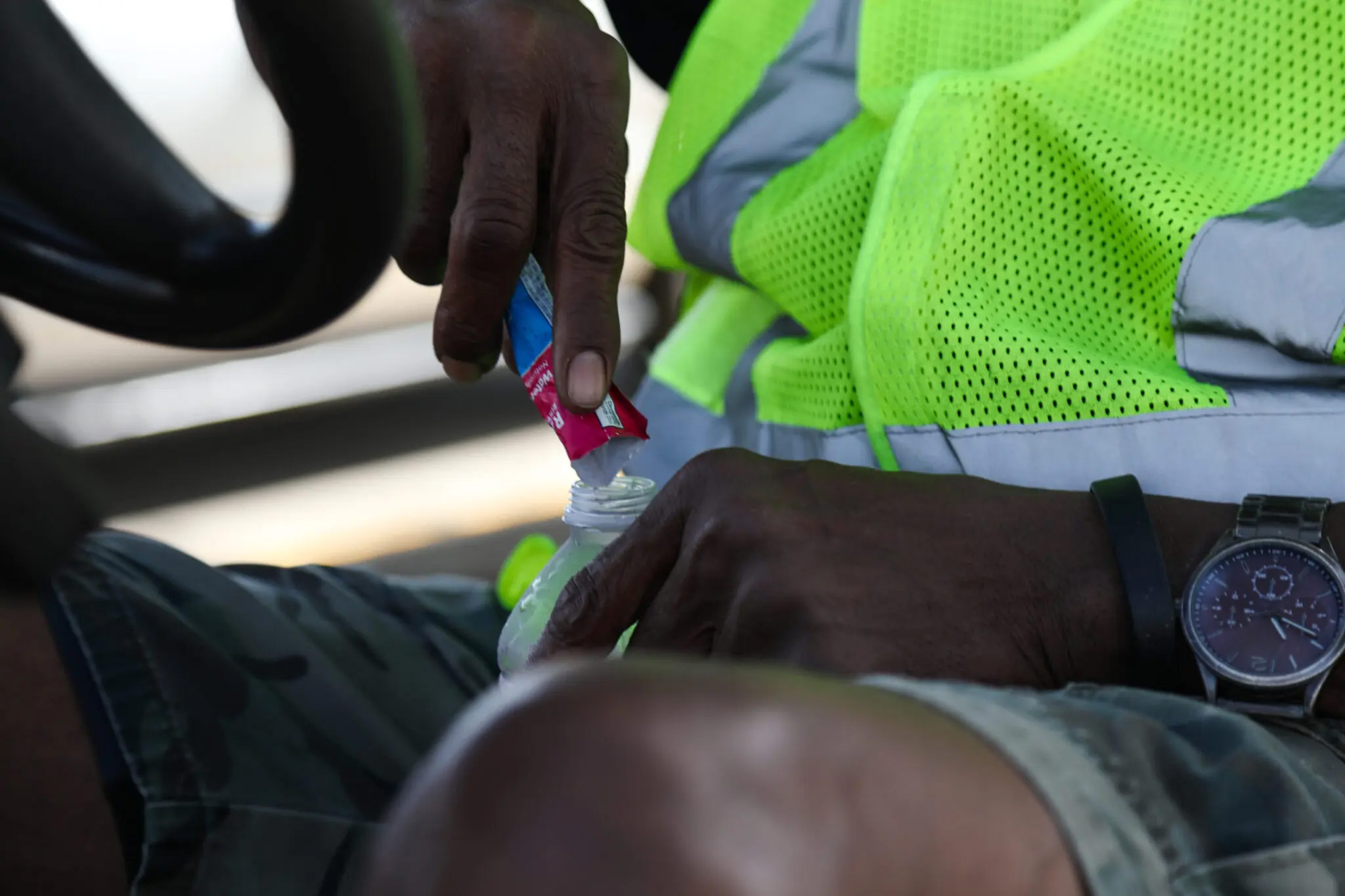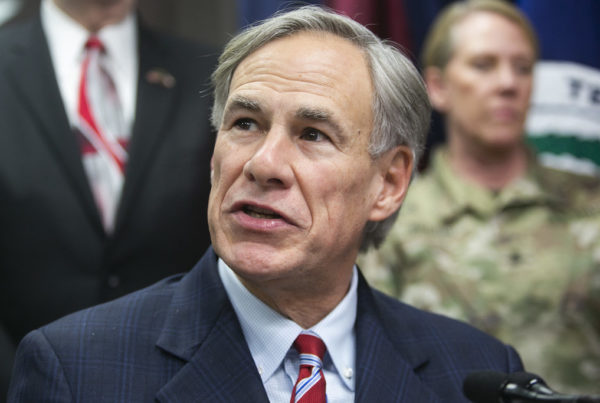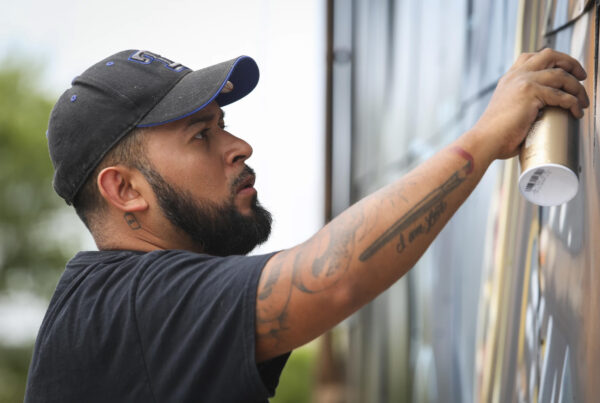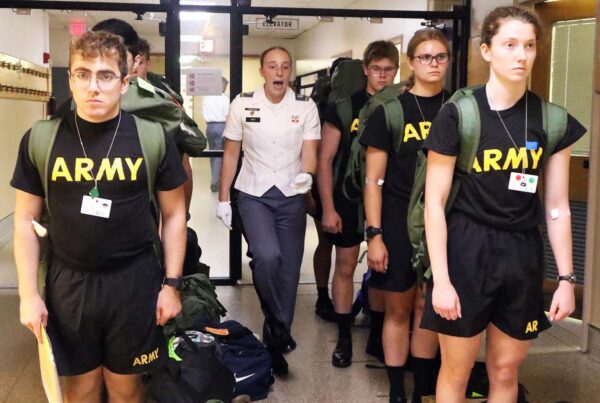Oscar Rodriguez has worked in construction for some 25 years, mainly in masonry building brick archways for the dozens of new residential developments in the Houston area.
The bricks bake in the sunlight adding an extra layer of heat to already scorching temperatures, according to Rodriguez. He tries to drink 12 water bottles a day and take breaks in the shade, sometimes pouring water on his head for relief. But that’s not always possible.
“Sometimes we have to be out in the sun all day,” he said in Spanish.
Rodriguez said when it gets really hot, he starts to feel dizzy, and no amount of water can get rid of his thirst. Sometimes he’ll get cramps: in his hands, his feet, his back.
“It’s really rough,” he said. “When that happens you have to stop working and go sit in the shade.”
Rodriguez said he hasn’t passed out but his coworkers have.
Outdoor workers are among those most vulnerable to extreme heat. Data from the Houston Health Department shows working outdoors was the most common reason patients were admitted to the ER for heat-related illness in 2022.
In June of this year, a construction worker in Fort Bend died from working outside.
Most of Texas has been dealing with extreme heat since mid-June. In Houston, the heat index has consistently surpassed 100 degrees, and climate change will continue to bring longer heatwaves and hotter days and nights. Without a reduction in greenhouse gas emissions, Houston could have an average of 55 days a year where temperatures exceed 100 degrees, according to a climate assessment commissioned by the city.


